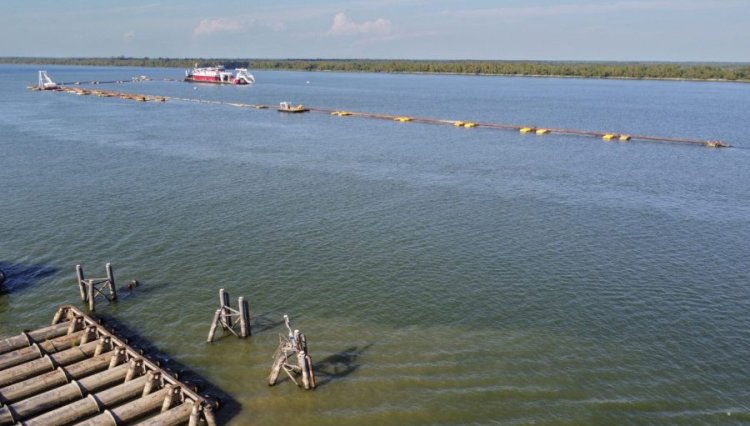New Orleans faces drinking water crisis from shrinking Mississippi River
New Orleans is facing a drinking water crisis amid a saltwater intrusion on the quickly shrinking Mississippi River.Local water resources in south Louisiana are being strained as saltwater from the Gulf of Mexico intrudes into the historically low water levels of the lower Mississippi River, posing a potential health risk for the public water systems that rely on this water.The National Weather Service Mississippi River expects the river volume to fall to new lows over the next several weeks, Louisiana Gov. John Bel Edwards (D) said in a statement.“Unfortunately, without any relief from the dry weather we are starting to see the saltwater intrusion creep further up the river despite efforts to mitigate the problems by the Army Corps of Engineers,” Edwards said in a Friday statement.New Orleans Mayor LaToya Cantrell (D) signed an emergency declaration over the saltwater intrusion last week, writing that the city is “closely” monitoring the situation.During a Friday press conference, Edw


New Orleans is facing a drinking water crisis amid a saltwater intrusion on the quickly shrinking Mississippi River.
Local water resources in south Louisiana are being strained as saltwater from the Gulf of Mexico intrudes into the historically low water levels of the lower Mississippi River, posing a potential health risk for the public water systems that rely on this water.
The National Weather Service Mississippi River expects the river volume to fall to new lows over the next several weeks, Louisiana Gov. John Bel Edwards (D) said in a statement.
“Unfortunately, without any relief from the dry weather we are starting to see the saltwater intrusion creep further up the river despite efforts to mitigate the problems by the Army Corps of Engineers,” Edwards said in a Friday statement.
New Orleans Mayor LaToya Cantrell (D) signed an emergency declaration over the saltwater intrusion last week, writing that the city is “closely” monitoring the situation.
During a Friday press conference, Edwards said the state was days away from requesting an emergency declaration from the federal government to assist with the impacts of the saltwater intrusion.
Edwards urged residents not to panic or rush to buy bottled water, adding residents will be notified in advance if salt water is impacting their area, according to The Associated Press. Around 15 million gallons of fresh water is being brought in for residents in impacted areas, the AP reported.
Plaquemines Parish in southeastern Louisiana has dealt with the impacts of the saltwater intrusion since June. Residents there are under a drinking water advisory, and bottled water is being distributed in the area.
Edwards noted Friday that worsening drought conditions in recent weeks could pose a risk for other communities. No parishes upriver from Plaquemines Parish are likely to see the impact in drinking water until mid to late October, Edwards’s office said. Areas that could see effects include the parishes of St. Bernard, Orleans and Jefferson.
The Louisiana Department of Health said it is conducting water quality testing and analysis while warning against trying to remove sodium through boiling or filters. Those who are affected will be told to use bottled water or another freshwater source until told otherwise, the Health Department said.
Officials are trying to find ways to fight the intrusion of saltwater, including the U.S. Army Corps of Engineers’ (USACE) construction of an underwater barrier sill last July to help delay the flow of saltwater. Edwards said the intrusion overtopped the sill last week as crews prepared for additional work.
“The Corps of Engineers will pursue every effort within our authority to support the state and local response to the extreme low-water conditions,” said Col. Cullen Jones, USACE New Orleans District commander.
Jones said crews will augment the existing underwater sill to delay the intrusion by around 10 to 15 days.
For the latest news, weather, sports, and streaming video, head to The Hill.
What's Your Reaction?










![[World] What is happening in Jenin... in 60 seconds](https://www.9020blog.com/uploads/images/202307/image_650x433_64a2f71cba67e.jpg)


